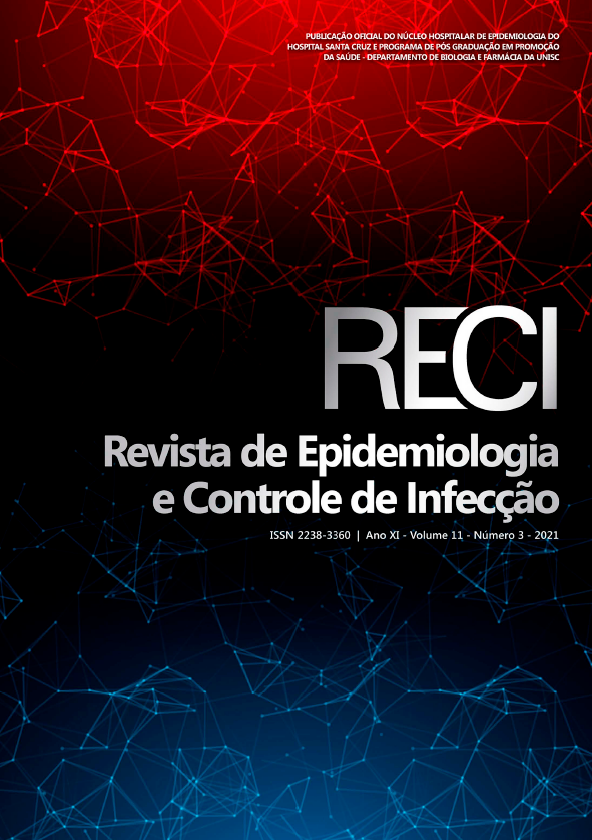Aspectos epidemiológicos de la Leishmaniasis Visceral Humana en el estado do Piauí, Brasil (2007-2017)
DOI:
https://doi.org/10.17058/reci.v11i2.16073Palabras clave:
Leishmania (Leishmania) infantum, Public health, Epidemiological monitoringResumen
Justificativa e Objetivos: A leishmaniose visceral apresenta considerável expansão em centros
urbanos no Piauí, e a sua ocorrência é marcada por sucessivos registros de surtos. O objetivo
deste estudo foi analisar os casos notificados de Leishmaniose Visceral Humana no Piauí, entre
os anos de 2007 e 2017. Métodos: Os dados sobre os números de casos e variáveis, como a
distribuição no tempo, no espaço e algumas características das pessoas atingidas, óbitos e
diagnóstico, foram através do Sistema de Informação de Agravos de Notificação (SINANDatasus). Resultados: Foram notificados 2.447 casos, com 2.265 casos autóctones (92,56%),
e o diagnóstico laboratorial conclusivo foi realizado em 86,6% dos casos. O ano de 2014 foi o
ano com maior registro (283 casos) e maior coeficiente de letalidade anual de 14,1%. Ao todo,
183 municípios (81,7%) apresentaram casos positivos em residentes. Na capital, Teresina,
ocorreu o maior número de casos em residentes (734 casos, 30%) e foi o município que mais
notificou em todo o estado (1.859 casos, 75,97%). Os mais acometidos foram indivíduos do
sexo masculino (66,30%) e faixa etária menor que 10 anos (43,44%). Em relação à
escolaridade, a classificação “não se aplica” foi mais prevalente (39,84%), assim como a
raça/cor parda (88,27%) e a zona residencial urbana (67,63%). Conclusão: A realização destas
análises fornece informações sobre a situação epidemiológica da leishmaniose visceral no Piauí
em uma série histórica de 2007 a 2017, como a distribuição espacial dos casos, municípios com
maiores incidências, a dificuldade de acesso ao diagnóstico, grupos sociais mais acometidos e
óbitos, podendo auxiliar no direcionamento das ações para o controle da doença no estado.
Descargas
##submission.downloads##
Publicado
Cómo citar
Número
Sección
Licencia
Derechos de autor 2021 Henrique Rafael Pontes Ferreira, Ana Carolina Landim Pacheco, Márcia Maria Mendes Marques

Esta obra está bajo una licencia internacional Creative Commons Atribución 4.0.
The author must state that the paper is original (has not been published previously), not infringing any copyright or other ownership right involving third parties. Once the paper is submitted, the Journal reserves the right to make normative changes, such as spelling and grammar, in order to maintain the language standard, but respecting the author’s style. The published papers become ownership of RECI, considering that all the opinions expressed by the authors are their responsibility. Because we are an open access journal, we allow free use of articles in educational and scientific applications provided the source is cited under the Creative Commons CC-BY license.


